BS
10 Parenting Choices That Can Trigger a Domino Effect Without You Realizing
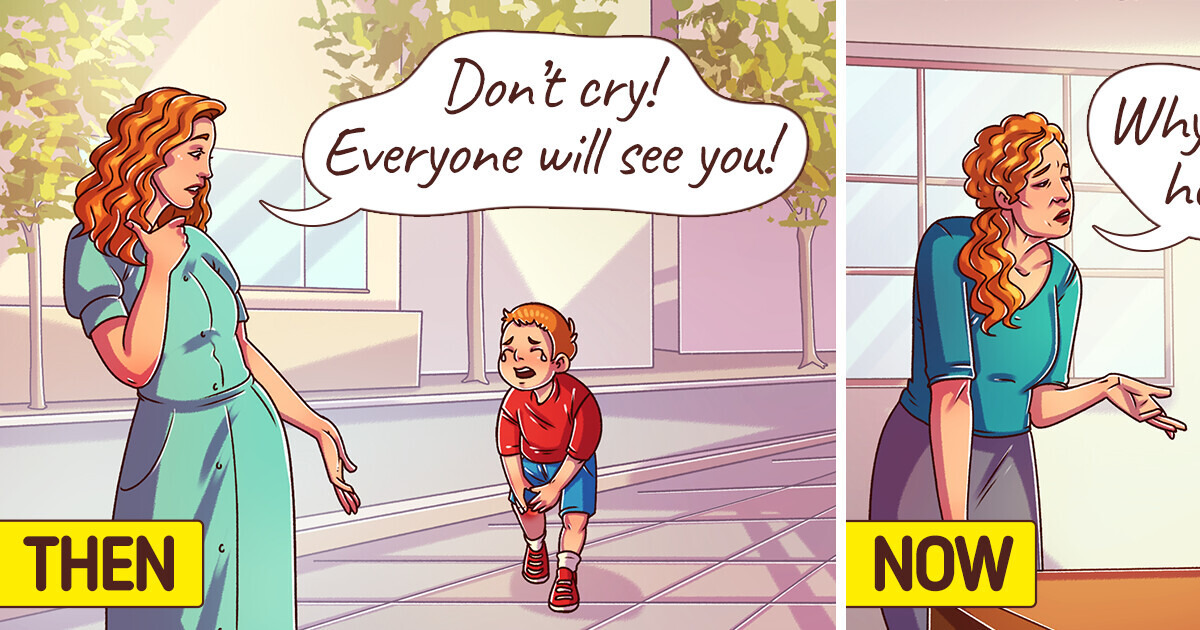
Parenting is undoubtedly one of the most challenging roles in life. While anyone can become a parent, not everyone excels at it. Being a good and effective parent requires immense responsibility, patience, and inner strength. Sadly, there are countless mistakes parents can make that can deeply affect their children, sometimes leaving lasting emotional scars.
1. Revealing your kid's secrets.

Trusting a secret to an adult is a big step for a child. This is both a test of authority and a way to support friendship. But if a parent laughs or gets angry instead of keeping the secret, and then also tells everyone about it, the trust in this family will be lost forever. Very often it makes children not want to tell their parents about anything at all.
2. Being strict and controlling.

Authoritarian parents are highly strict and exert strong control over their children. They expect obedience without question, and any attempt at negotiation is viewed as disrespect or backtalk. These parents typically disregard their children's feelings and opinions, enforcing rules with punishment rather than discipline. They often justify their approach as "tough love," believing it prepares their children for the challenges of the real world.

However, this parenting style can be harmful. Children raised in authoritarian households tend to be less independent, struggle with insecurity and low self-esteem, and often lack essential social skills needed for leadership. This is because their voices are not heard, and their choices are made for them, limiting their ability to develop confidence and autonomy.
3. Making your child think you don’t have time for them.

Emotionally neglectful mothers and fathers don't reject their children completely, but they don't give them a lot of attention. When these parents become older, they realize that for some reason, their children don't show them enough love, care, and respect. But there's nothing surprising about that.
4. Thinking that all kids should have a sibling.
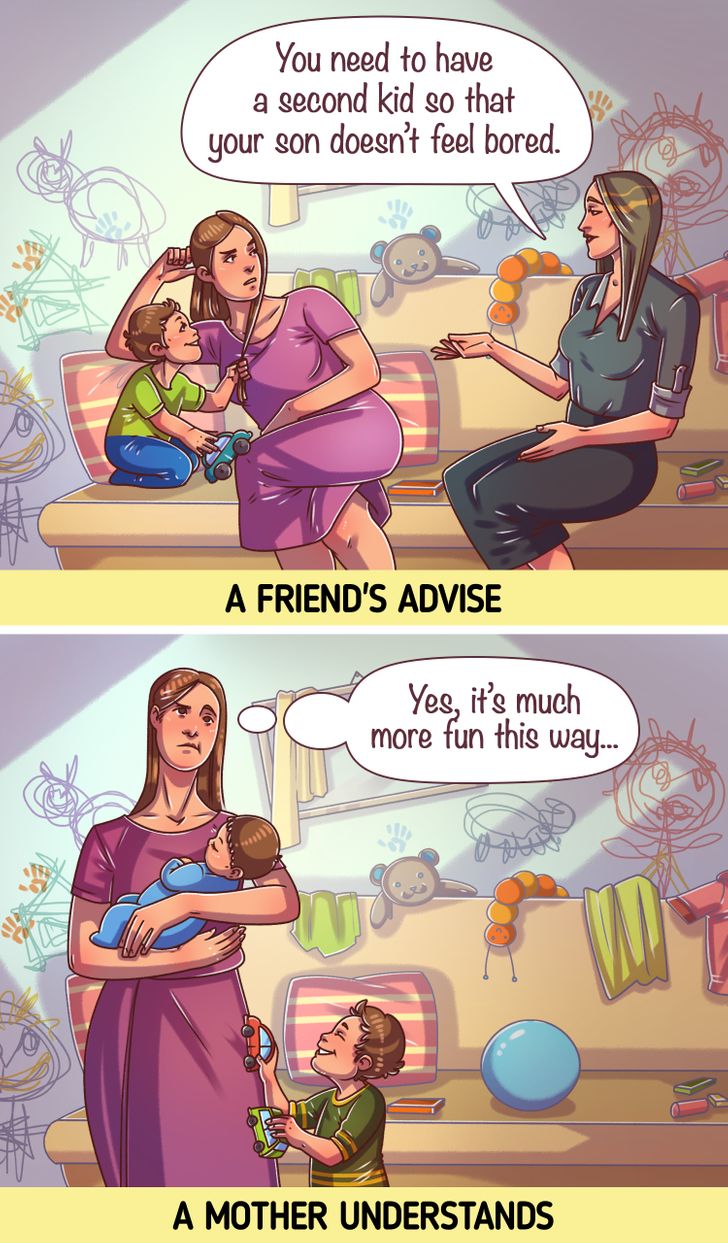
It often seems to people outside the family that they know better about what young parents should do. It's easy for friends and neighbors to say things like, "It's high time you had a second kid," or assume a mother and a father should necessarily give birth to a boy or a girl, or think that a baby who lacks attention will get more of it once their small sibling appears. Of course, few people rush to follow such advice, but they do get terribly annoyed with it.
5. Not letting your kids show their emotions.

"Why are you crying like a baby?" "Look! Everyone is looking and laughing at you!" "You're not beautiful when you're crying, stop it now!" — many parents are convinced that shaming their children for crying is the only way to stop them from crying. But the only thing this reaction can lead to is making children reserved and shy. Crying when you are hurt is normal. Kids need to be able to deal with unpleasant emotions.
6. Creating gender dichotomies between your kids.

This is a very frequent situation in a family where one of the children is loved more. For example, the older child is supposed to perform the duties of a parent, and he or she is told off for every little thing, whereas the younger child gets away with everything. And the older child may be required to set an example for the younger child. If parents don't notice this problem, it makes the conflict between the siblings very serious.
7. Being ashamed of having fun with children.

Children often copy their parents' behavior. This also applies to having fun. Therefore, games and having fun together play a big role in their upbringing, along with training and serious conversations.
8. Thinking a kid should eat what they’re given.
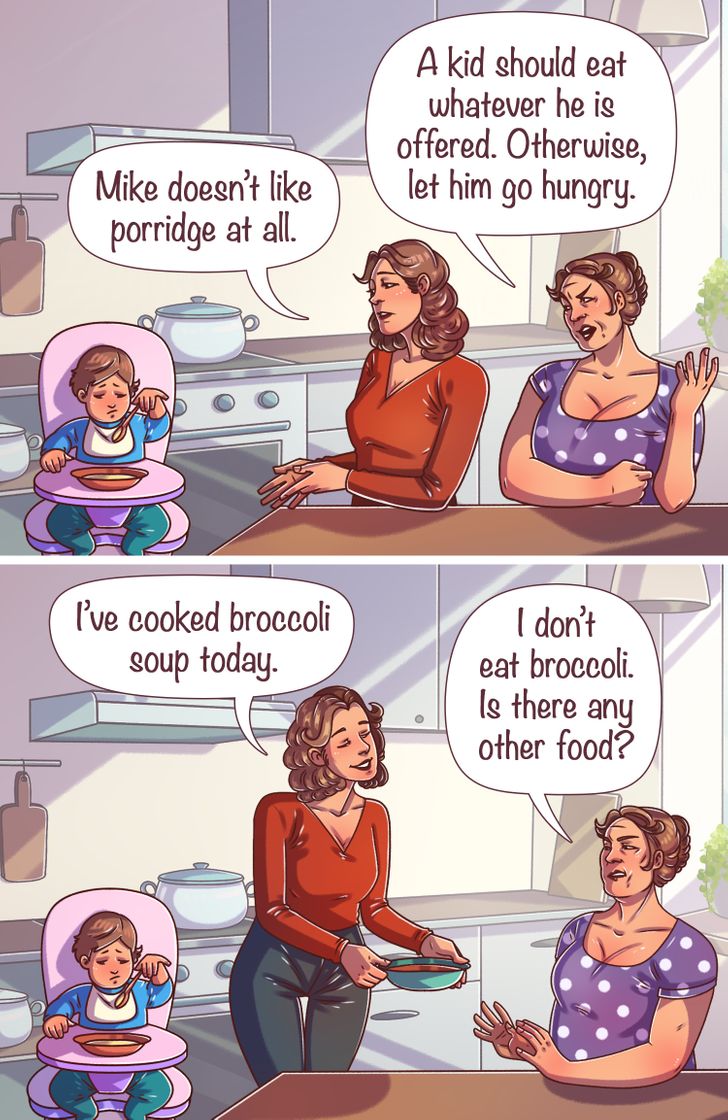
If you've ever tried broccoli purée, you'll likely understand that not every adult can make themselves eat it, while babies eat it avidly. Tastes in food among kids and adults can vary, and it's absolutely normal. That's why there is nothing wrong with a kid refusing to eat porridge that they don't like. After all, there are dishes many adults refuse to eat too.
9. Projecting your own wants on the kid.
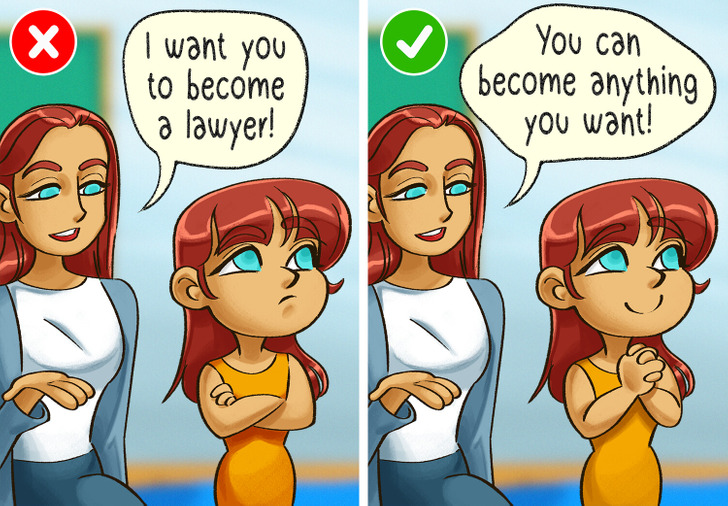
Sometimes, often unknowingly, we project our own childhood fears, dreams, and ambitions onto our kids. We assume our kids feel the same emotions, have the same ambitions, and experience things in the same way we did as children. Basically, it's acting like we are parenting ourselves as kids.
We could expect them to pursue our passions instead of discovering and developing their own. This projection can make it difficult for us to perceive them as separate, unique individuals. But rather than assuming kids have the same needs as we did when we were children, parents should pay attention to and nurture their kids' true needs, talents, and desires.
10. Being too lenient.

Permissive parents may establish rules, but they rarely enforce them. They often find it difficult to say no or to discipline their children, allowing bad behavior to be easily overlooked or forgiven. In this dynamic, they act more like friends than authority figures. While permissive parents highly value their children's feelings and desires, they may prioritize them to the point where it can negatively impact the child's development. Without clear boundaries, children may struggle with self-discipline, responsibility, and understanding limits as they grow.
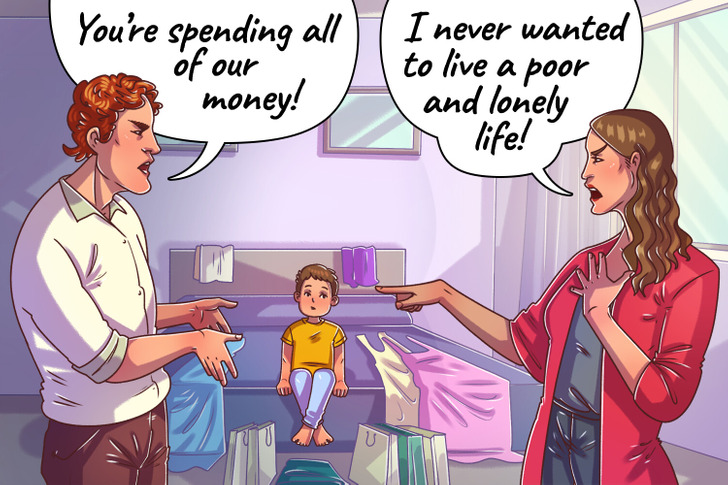
Since indulgent parents seldom enforce discipline, their children may struggle with self-control and have difficulty following rules, which can negatively affect their social interactions. These children might develop a sense of entitlement, expecting to get whatever they want without facing consequences. Additionally, children raised in permissive households often experience low self-esteem and tend to perform poorly in academics, as the lack of structure and guidance can hinder their ability to stay focused and motivated.
One of the many challenges of parenting is dealing with awkward moments, but being a mom or dad goes far beyond just handling these situations. It's about guiding your children through tough times with love and compassion. No matter how difficult things get, children should always feel loved and supported. That’s the essence of true parenting.
Comments
Related Reads
10+ Things That Were Unacceptable in the Past, but Are Pretty Normal Now

20 Celebrity Outfits That Pushed the Boundaries of Fashion

19 Celebrities Whose Sassy Outfits Sparked Heated Buzz

18 Stars Who Openly Talked About Plastic Surgery

15 Stars Who Look Like Completely Different People Today

12 Heartfelt Stories Proving Kindness Heals More Than We Realize
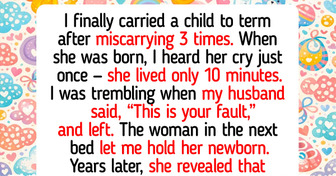
14 Star Comparisons That Reveal How Celebrities Really Age

8 Celebrities Who Trusted Cosmetic Surgery — and It Went Terribly Wrong

My MIL Was Sure I Was “Faking My Pregnancy” — What She Did to Prove It Left Me Speechless

“World’s Hairiest Girl” Reveals Astonishing New Look — Fully Grown and Madly in Love

Baby Girl With a Rare Smile Grew Up — What She Looks Like Today Will Leave You Speechless

11 People Share Stories with Plot Twists That Are Almost Impossible to Predict
